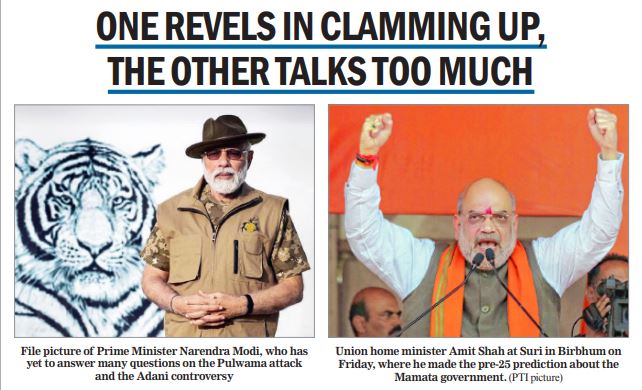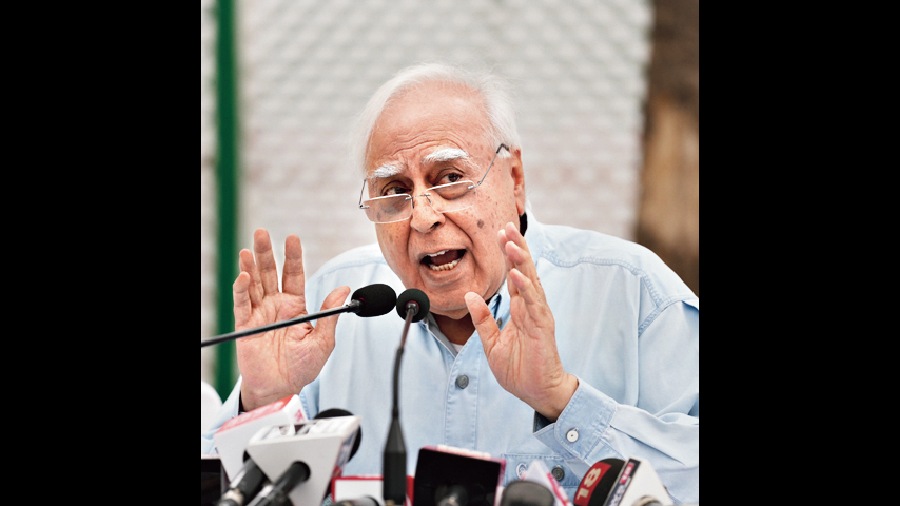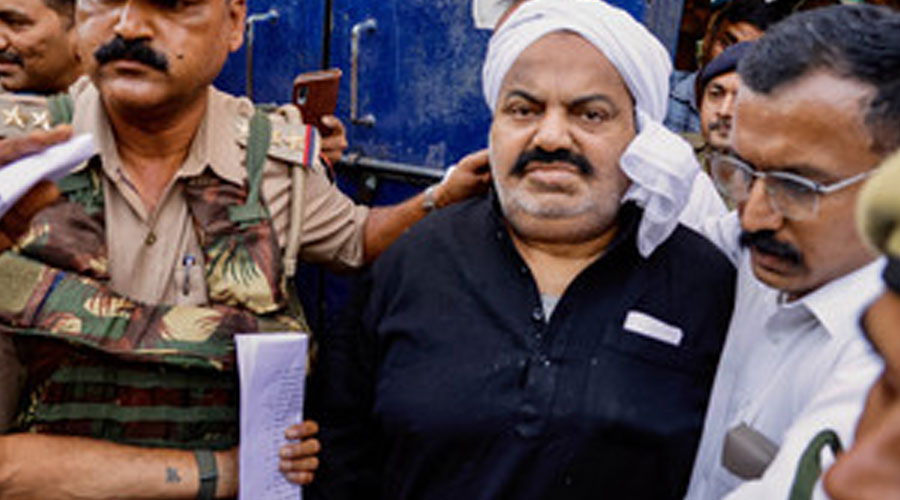Veteran lawyer Kapil Sibal and former Supreme Court judge Madan A. Lokur have separately raised questions about the killing of politician and alleged gangster Atiq Ahmed and his brother Ashraf, who were shot at close range on Saturday night as they were being escorted to a hospital in Allahabad by armed policemen.
Sibal aired his doubts on Twitter. “Atiq & Ashraf (The art of elimination),” he wrote on Monday. “Odd: 1) 10pm for medical check-up? 2) No medical emergency 3) made victims walk 4) open to media? 5) assassins unknown to each other at the spot? 6) weapons above (worth) Rs 7 lakhs 7) well trained to shoot! 8) All 3 surrendered.”
The three killers had posed as journalists to approach Atiq and Ashraf and surrendered at the spot to the over two dozen armed policemen who were escorting the brothers.
Justice Lokur, in a 27-minute interview with journalist Karan Thapar for The Wire, pointed out that “while there have been encounter deaths before”, the Saturday night killings were “probably the first time people have been killed by a third person while in police custody”.
The former judge said the incident raised four damaging questions or suspicions about the Uttar Pradesh police:
First, why did the police not take the killers into police custody and instead sent them to judicial remand? Don’t they want to/ need to investigate?
Second, were the police armed? If they were, why did they not fire back? If they weren’t, why not? Atiq Ahmed was clearly a man under threat.
Third, how did the killers know Atiq and his brother were being taken to the hospital at 10.30 at night? And how did they know the media would be there and they could masquerade as media persons? Were they tipped off by someone?
Fourth, where was the need to take them for a medical examination at 10.30pm? Why couldn’t they have been taken in the morning, particularly as their police custody only ended at 5pm on Sunday?
Sibal underlined that there was no medical emergency to justify taking a high-risk prisoner for a check-up at night. Nor did the brothers need to be taken together.
The lawyer asked why the prisoners were made to walk and why the media were allowed to interact with them, which is not the norm. This is a question raised by retired police officers too.
Some people had recently voiced fear of assailants posing as reporters attacking Atiq, considering how closely the media were covering his travel from Ahmedabad to Allahabad. Journalists were seen jostling with each other and talking to Atiq from barely inches away.
Atiq had expressed fear about being killed by Uttar Pradesh police and petitioned the Supreme Court to stop his transfer to Allahabad jail, but his petition was declined. The Uttar Pradesh government had assured the court about the safety of Atiq and Ashraf.
Justice Lokur said the Supreme Court should have been “more cautious” while disposing of Atiq’s plea for protection while in police custody. “The court should have asked for an assurance from the police of protection,” he said.
The cold-blooded killing of Atiq and Ashraf while in police custody was “to say the least, shocking” and had raised several worrying questions and suspicions about the Uttar Pradesh police, the retired judge said.

Referring to chief minister Yogi Adityanath’s statement on February 25 that “mafia ko mitti mein mila denge”, Justice Lokur said it was “very unfortunate”. “It’s not good at all. That’s an indication there’s something wrong with the rule of law, with our judicial system.”
A video that has surfaced on social media shows Ashraf claiming that a top police officer had told him the brothers would be eliminated within two weeks. Asked who the officer was, Ashraf can be heard saying: “I can’t name him, but he told me, ‘You will be taken out of jail on some pretext and finished off within two weeks’.”
Unconfirmed reports have suggested that Atiq and Ashraf had written to high judicial and political functionaries about the threat. Sibal asked if the assailants knew each other. If they did not and had not planned the attack together, how did they land up at the spot at the same time and execute their separate plans in unison, he asked?
The assassins had sophisticated weapons, were trained to hit the target, and all of them chose to surrender. All this clearly points to a plot collectively executed by the trio, which would suggest they were working together under instructions. The police have said the suspects committed the crime to become famous. It is unclear if this was the sole motive for all three, who come from different parts of the state. It is not known whether they had worked together in the past.
Retired police officers have expressed outrage that there was no retaliation from the policemen guarding the prisoners even though they possessed modern weapons, including machine guns.











